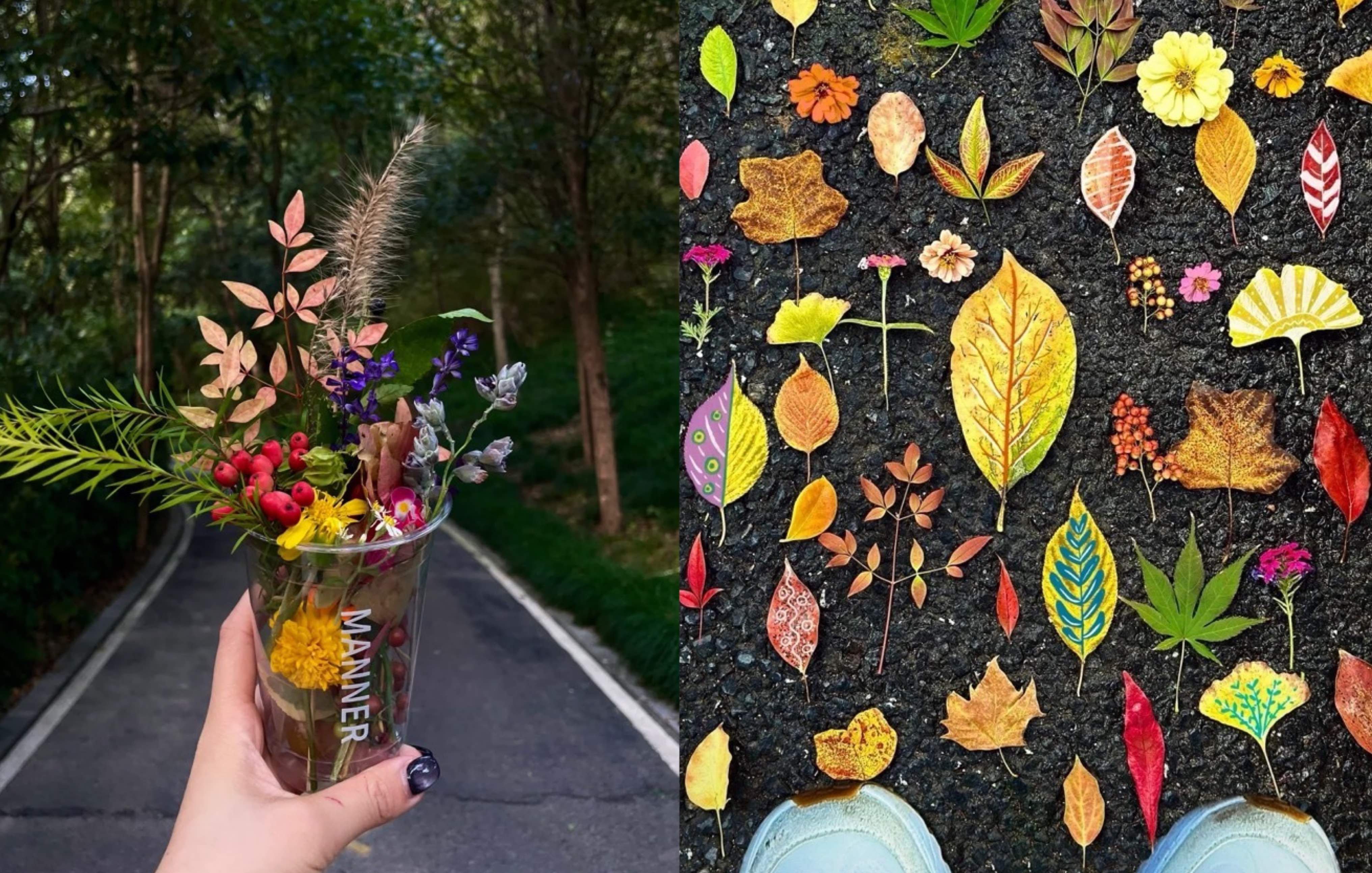Christine Hung went camping for the first time a few weeks ago with two of her friends by a lake on the outskirts of Shanghai.
“I decided to finally embark on a camping trip after seeing so many gorgeous camping pictures on my social media feed,” she says, explaining how her WeChat (China’s most popular messaging app) has been flooded with camping-related updates over the past year.
“On the one hand, I really wanted to be in nature and escape from city life for a weekend; on the other hand, I was jealous of those camping pictures that present an idyllic lifestyle, which I don’t want to miss out on,” the 28-year-old Hung tells us, speaking to the peer pressure of appearing trendy.
Related:
 What Is LARPing? And Why Do Chinese Youth Love to LARP?LARPing has experienced explosive growth among Chinese youth in the past year. So what is it and why is it so popular?Article May 10, 2021
What Is LARPing? And Why Do Chinese Youth Love to LARP?LARPing has experienced explosive growth among Chinese youth in the past year. So what is it and why is it so popular?Article May 10, 2021
While she is an outdoorsy person with an affinity for nature, Hung had never been camping before this sojourn out of Shanghai, but she is part of a new wave of young Chinese people who have fueled China’s skyrocketing camping trend, which began picking up steam in 2020.
For years, conventional social activities in China have centered around shopping malls, restaurants, movie theaters, and KTVs. In post-Covid China, however, young people are tired of these traditional forms of socializing, and are gradually gravitating towards more adventurous experiences in their search for new forms of entertainment. In addition, with restrictions on traveling outside of the country, people are looking inwards but in a more creative fashion.
“Because of the pandemic, more and more young people are turning to domestic travel destinations,” says Dr. Han Shen, a professor at the Tourism Department at Fudan University in Shanghai.
For millennial and Gen Z populations in China, outdoor recreational activities that are within reach on the outskirts of major cities, such as camping, surfing and fishing, are becoming more prominent. For many, these activities are on their personal Daka (打卡) lists — a Chinese Internet buzzword that describes people ‘clocking in’ at Instagram-worthy places.
Related:
 The 3 Biggest Takeaways From China’s 618 Shopping Festival This YearXiao Zhan was one of the biggest winnersArticle Jun 24, 2021
The 3 Biggest Takeaways From China’s 618 Shopping Festival This YearXiao Zhan was one of the biggest winnersArticle Jun 24, 2021
China’s Camping History
Traditionally, camping is a deep-rooted and widely popular retreat. For a vast population of families in the west, it’s an annual ritual with history dating back more than 150 years. While it has become an emerging national sensation in China, it has existed in different forms in the country previously.
“Camping has always existed in China. Summer camps used to be a predominant form of retreat that were popular among teenagers. But now it has attracted more and more white-collar workers,” says Dr. Shen.
Xiaohongshu, the popular lifestyle social media platform whose monthly active users have reached 100 million, with 83.31% of people on the app between the ages of 18-34, has been the predominant social media app behind the trend.
According to statistics provided by the site, during the year of 2020 there has been a 271% increase in camping-related posts on the platform compared to 2019, with an increase of 170% in the number of views of camping content.

Influencers post about camping on Xiaohongshu

Influencers post about camping on Xiaohongshu
In 2021, this rise in interest is even more obvious. Between January 1 and April 1, the total search volume of camping content, as well as the number of relevant posts released, maintained an upward trend. One month later during the Labour Day holiday, the search volume increased by 230% compared to previous year. For the Dragon Boat Festival in mid-June, the search volume grew four times in comparison with the same period of 2020.
The popularity of travel and camping-related reality shows, like Oh Youth, Catching for the Stars, and Viva La Romance have also contributed to this trend.

Screenshot of the first episode of the travel reality show Oh Youth
The opening episode of Oh Youth, which starred the TF Boy’s Karry Wang and which saw participants camping in the southwestern province of Sichuan, has garnered over 86 million views on video streaming platform Tencent Video following its release in early April.
However, camping in China means something different for the young people who have driven the trend. Often it is just a good opportunity to pose for an idyllic photo that can then be posted on social media. As such, it is still largely a privileged activity.
The Rise of the Middle Class
Hung and friends ended up going to a camping spot by Dianshan Lake, west of Qingpu District in the Shanghai suburbs, after doing some research on Xiaohongshu. Puzzled by the high cost and complications of obtaining camping gear, they decided to rent them on ecommerce platform, Taobao, for the price of around 250 RMB (around $38 USD) per day.
“I think it was totally worth it,” Hung says, referring to the trip. “When we were by the lake, I could feel that other campers were really enjoying the time as they were casually chatting, making food and listening to the music.”
However, Hung admits that it might be a while before she goes on another camping trip, mainly because of constraints such as the high cost, traffic and the poor conditions of the campground where she stayed. “During the summer, mosquitoes can be a big problem. And having tried it once, that’s quite enough for me already.”
25-year-old Zhuo Xue, who has 7 years of hiking experience, thinks the rising camping phenomenon in China’s mainstream has a lot to do with “the rise of the middle-class” and is “very distinct from China’s long-lived ‘hiking and camping’ community.”
“The popularity of camping in China recently is simply just glamping,” says Xue. “China’s hiking and camping community dates back to around 20 years ago, but the recent hype has nothing to do with that.”
“The barriers to this kind of glamping are quite high,” Xue explains. “First of all, you have to have a car to be able to escape the city. Second, you need to have enough vacation days (forget about 996 workers) and enough of a budget to acquire camping equipment, or an even higher budget to walk into a luxury campground.”
“Camping gear is actually really, really expensive,” Xue added.
Related:
 Chinese Tech Companies Are Cancelling Required Overtime. Employees Want More“If the workload doesn’t change, it just means I need to work overtime at another place.”Article Jun 25, 2021
Chinese Tech Companies Are Cancelling Required Overtime. Employees Want More“If the workload doesn’t change, it just means I need to work overtime at another place.”Article Jun 25, 2021
Glamp ‘Til You Drop
Camping, as a weekend activity that requires at least a one-night stay, is still a hobby for the rich and unoccupied, or of wanghong’s (social media influencers).
The co-founder of China’s most popular glamping brand Dare Glamping, which has built a number of luxury campsites in China’s tropical southern city Sanya and other major tourist destinations, said that around 80% of their customers come just for the photos. “China is still at the very early stage of camping culture, as people are just curious and checking it out.”

Campsites of Dare Glamping. Photo via Weibo
Shenwei, a travel blogger with over 10 million followers on Chinese microblogging site Weibo, believes the rising camping trend in China “has nothing to do with embracing nature,” but is, “just part of the wanghong culture.”
“A very small percentage of people I know online or offline who are talking about camping grasp the true spirit of it. Most people are just there to take photos,” says Shenwei.
“It is another form of involution,” Shenwei added, “people go camping because other people are doing it.”
Cover Image courtesy of Dare Glamping


















